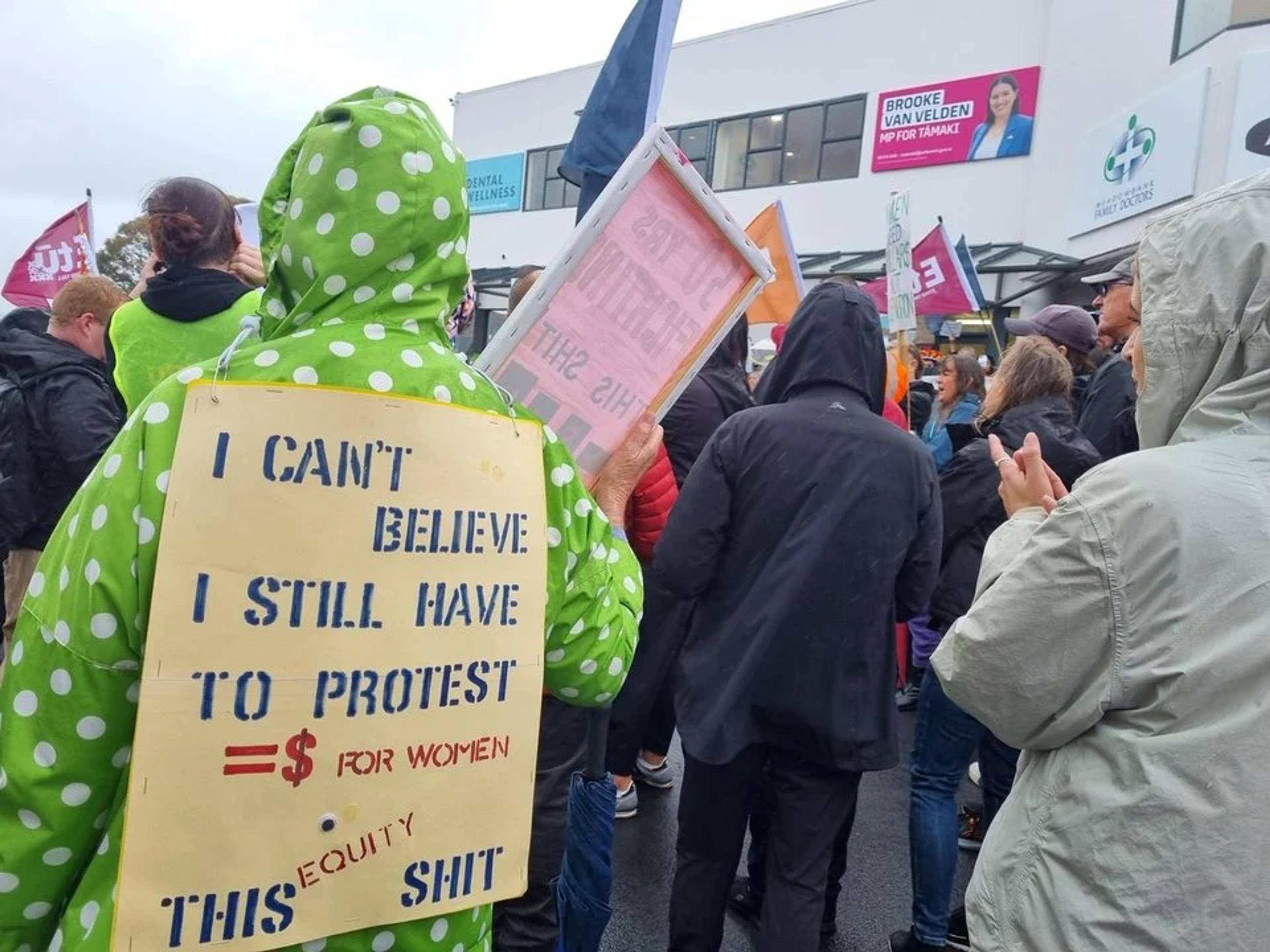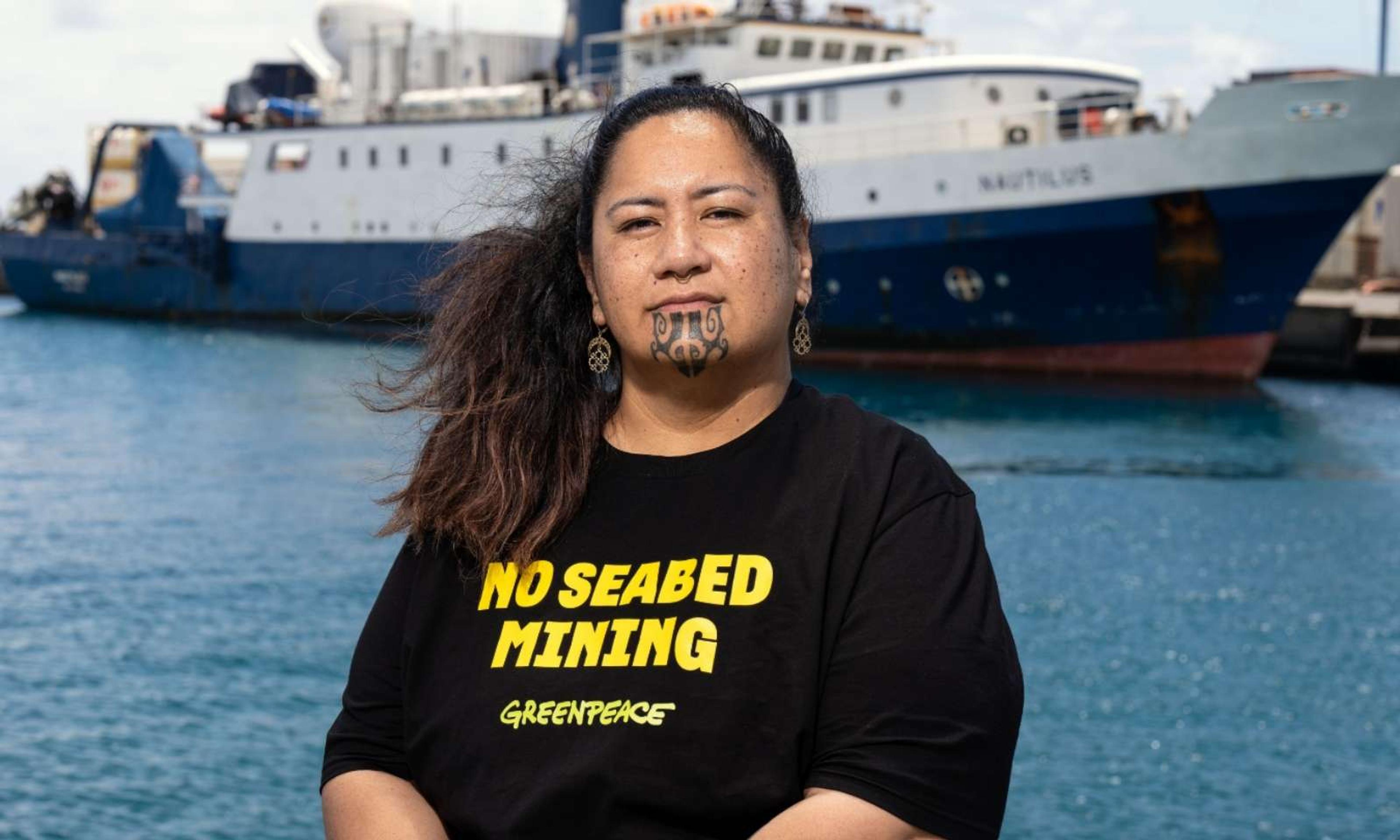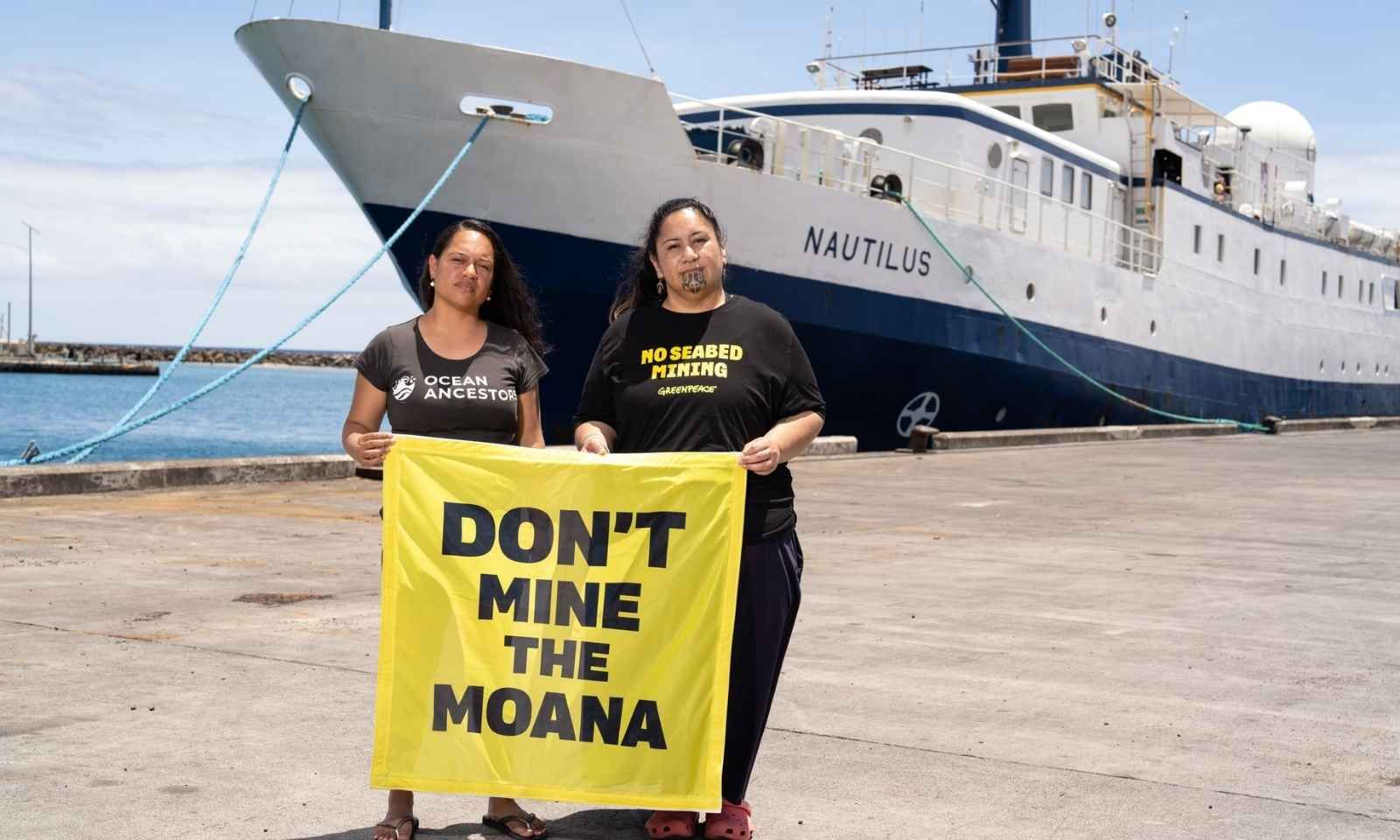

Greenpeace Aotearoa campaigner Juressa Lee says the extension is a result of sustained community pressure.
Photo/Greenpeace Aotearoa
Cook Islands seabed mining delay hailed as win for ongoing Pacific region resistance
Greenpeace Aotearoa says Rarotonga’s decision to extend seabed minerals exploration until 2032 shows growing regional opposition.




Sepuloni urges govt change amid challenges for Pacific communities




Sepuloni urges govt change amid challenges for Pacific communities
Greenpeace Aotearoa welcomes the Cook Islands’ decision to extend seabed minerals exploration until at least 2032, saying it is evidence of rising opposition in the Pacific.
Greenpeace views the extension as a result of sustained community pressure. The Cook Islands Seabed Minerals Authority (SBMA) has confirmed that companies must apply for a further five-year exploration term because their existing work programmes remain incomplete.
The delay means no mining decisions can be made before 2032, pushing the timeline well beyond the original five-year research window established in 2022. Four local activists confronted the US-funded research vessel, Nautilus, in Rarotonga last month, holding signs that read “Don’t mine the moana”.
Speaking with William Terite on Pacific Mornings, Juressa Lee, a Greenpeace Aotearoa campaigner, says the extension reflects a “very strong and growing movement that opposes seabed mining”.
She says that the Cook Island’s government is feeling that pressure. She refers to a historic seabed mining test carried out on the Blake Plateau in the Atlantic, where experimental mining machinery was tested in the early 1970s.
A 2022 scientific survey conducted by the United States Bureau of Ocean Energy Management and National Oceanic and Atmospheric Administration (NOAA) found that the disturbances caused by those tests is still visible more than 50 years later.
Listen to Juressa Lee’s full interview below.
International scientific bodies have also raised concerns as well. A coalition of more than 940 marine experts from 70 countries has warned that deep sea mining could lead to irreversible biodiversity loss. They argue that there is far too little knowledge about deep sea ecosystems to justify commercial extraction.
“So we are not going to know anywhere near enough about the impacts of seabed mining in a 10-year exploration period,” Lee says. Local concerns echo Lee’s warning. Speaking to Cook Islands News, the environment group, Te Ipukarea Society (TIS), says they would prefer “at least 10 years of meaningful research”.
"Realistically, five years has never been an adequate timeframe to gather the necessary information for a well-informed decision on deep-sea mining. Anyone with even a slight appreciation for the vast unknowns of the deep sea would understand this limitation," TIS says.
"There are still far too many unknowns regarding the biodiversity and ecosystem services provided by deep-sea life. While we are glad to hear there will be an additional five years for exploration, we would like to see a commitment to at least 10 more years of meaningful research.”

Ocean Ancestors’ members Louisa Castledine (left) and Juressa Lee. Photo/Greenpeace Aotearoa
The Seabed Minerals Authority also acknowledges major gaps in scientific knowledge. SBMA knowledge management director Dr John Parianos says, “one day someone will have to make a decision about what to do and it’s clear today we don’t know enough to make a decision”.
Three companies currently hold exploration licences in Cook Islands waters: Moana Minerals Limited, Cobalt (CIC) Limited, and CIIC Seabed Resources Limited. Each company must apply for a renewal to continue its research beyond 2027.
Greenpeace warns that the economic promises attached to seabed mining mirror patterns seen in previous extractive industries. Lee says it is crucial to have an honest conversation about who truly benefits from mining.
“Not just for a few, [or] these foreign industries and foreign superpower countries who are telling us that everyone will benefit. Mining has never worked that way. Mining has always been for the benefit of a few, but the impacts have been long-lasting and far-reaching for everybody else.”
PMN News has reached out to the Cook Islands government for comment.